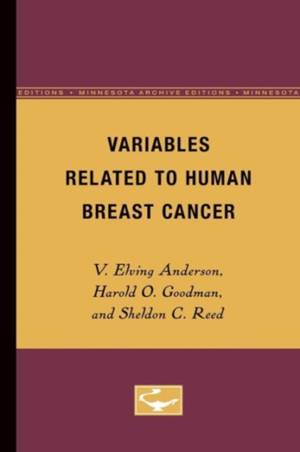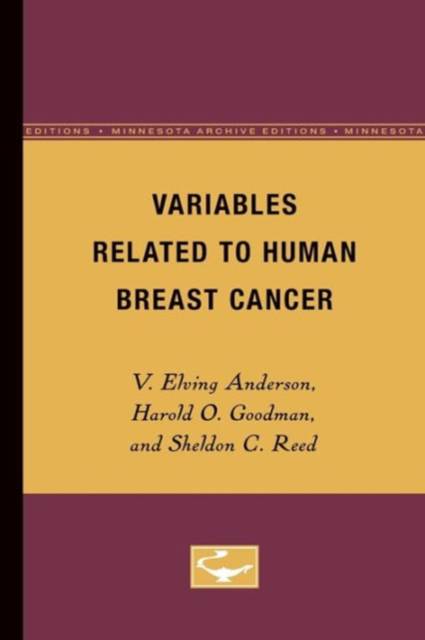
Door een staking bij bpost kan je online bestelling op dit moment iets langer onderweg zijn dan voorzien. Dringend iets nodig? Onze winkels ontvangen jou met open armen!
- Afhalen na 1 uur in een winkel met voorraad
- Gratis thuislevering in België vanaf € 30
- Ruim aanbod met 7 miljoen producten
Door een staking bij bpost kan je online bestelling op dit moment iets langer onderweg zijn dan voorzien. Dringend iets nodig? Onze winkels ontvangen jou met open armen!
- Afhalen na 1 uur in een winkel met voorraad
- Gratis thuislevering in België vanaf € 30
- Ruim aanbod met 7 miljoen producten
Zoeken
Variables Related to Human Breast Cancer
V Elving Anderson, Harold Goodman, Sheldon Reed
Paperback | Engels
€ 67,95
+ 135 punten
Omschrijving
Variables Related to Human Breast Cancer was first published in 1958.The question of what role, if any, heredity plays in the etiology of human cancer is of obvious importance in the continuing search for an answer to the riddle of cancer. This book describes a study which was conducted at the Dight Institute for Human Genetics of the University of Minnesota, seeking evidence on two aspects of the heredity question. The objectives were, first, to determine whether there is an increased frequency of cancer among relatives of breast cancer patients (over what would be expected by coincidence) and second, to find out whether any family tendency to cancer is general or site-specific.The families of 621 breast cancer patients treated at the Tumor Clinic of the University of Minnesota Hospitals were investigated, with special attention to the choice of original patients and to the completeness of information. For comparison the authors studied the families of husbands of the patients and also analyzed statistics on cancer cases and deaths in the general population.The methods used in the project are described in detail, the data are presented, and the results interpreted. The findings are of value not only in their scientific application but also for use in counseling relatives of breast cancer patients, since these relatives often have greater fear of developing cancer than the facts warrant.
Specificaties
Betrokkenen
- Auteur(s):
- Uitgeverij:
Inhoud
- Aantal bladzijden:
- 192
- Taal:
- Engels
Eigenschappen
- Productcode (EAN):
- 9780816668298
- Verschijningsdatum:
- 1/01/1958
- Uitvoering:
- Paperback
- Formaat:
- Trade paperback (VS)
- Afmetingen:
- 149 mm x 229 mm
- Gewicht:
- 285 g

Alleen bij Standaard Boekhandel
+ 135 punten op je klantenkaart van Standaard Boekhandel
Beoordelingen
We publiceren alleen reviews die voldoen aan de voorwaarden voor reviews. Bekijk onze voorwaarden voor reviews.











